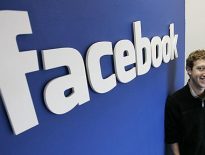(Reuters) – On the face of it, Universal Music Group’s bid to buy a big chunk of EMI stands to make the world’s leading music company an even more formidable force, combining Universal’s star lineup of Lady Gaga and Rihanna with the British company’s deep library of The Beatles, Pink Floyd and Katy Perry.

Certainly the fierce opposition from rival Warner Music Group, consumer groups and independent music companies makes it seem that way. They have all vowed to fight it tooth and nail, telling U.S. and European regulators that the merger would create a behemoth capable of controlling the future of digital media by withholding content from digital music startups.
But industry insiders say regulators also are looking at a counterargument – that the major recording companies already are weakened giants worn down by the forces of big retailers and piracy that put downward pressure on the price of CDs and digital downloads.
U.S.-based Universal, owned by Paris-based Vivendi, made the $1.9 billion deal in November.
Eight antitrust experts interviewed about the issue were divided about the chances for approval, largely because the music landscape has changed so much in recent years that it is not clear that a deal that would concentrate 40 percent of the recorded music industry in one company would harm competition.
“Ten years ago, the labels had power. Today they don’t have any power. If they (the U.S. Federal Trade Commission) block it, it’s just because they don’t understand the market,” said Daniel Sokol, who teaches antitrust issues at the University of Florida Levin College of Law.
Two antitrust experts who spoke on condition of anonymity to protect business relationships said that Universal faces a tough fight in winning U.S. approval – especially because Warner Music Group, owned by privately held Access Industries, has organized opposition to the deal.
“My sense is that the FTC could take a hard line depending on how good a job Warner does in generating complaints,” one expert said. “It wouldn’t surprise me if it didn’t go through.”
Universal is gearing up to begin discussions later this month with the FTC about potential asset sales that could make the transaction more palatable to regulators, said a person familiar with the matter who spoke on condition of anonymity.
Universal also is considering making a request to the FTC in the next two weeks for the agency to decide on approval of the deal within a 30-day period, this source added.
Two industry insiders who have met with U.S. regulators say the FTC is asking about the pricing power of retailers like Apple and Amazon, who use cheap music as loss leaders to attract customers for more expensive goods, and about the pressure of illegal music downloads.
The FTC also is asking about allegations made by consumer groups and others that Universal has been reluctant to license its enormous catalog of must-have music to digital startups, or has licensed the music only on onerous terms, those insiders said, speaking on condition of anonymity.
Universal spokesman Peter Lofrumento said the company is working closely with the FTC and is confident of approval. The FTC declined to comment on the matter.
As the U.S. regulatory review heats up, a Senate Judiciary subcommittee said last week it will hold a hearing on the matter. The panel has no official say over approval, but is able to help shape the debate over the deal.
‘AN ANTICOMPETITIVE MERGER’
While the FTC may accept the argument that major retailers push prices down, Bert Foer, president of the American Antitrust Institute advocacy group, dismissed piracy as a defense.
“It’s a passing issue and it will eventually get dealt with. It should not be the justification for allowing an anticompetitive merger to take place,” Foer said.
The consumer groups Public Knowledge and Consumer Federation of America have written to two U.S. House of Representatives and Senate antitrust subcommittees to urge close scrutiny of the deal. The groups said Universal’s 40 percent market share could make it a bully when innovative startups come up with new ways to sell and stream music online.
“If you control that much of the marquee content, they can determine the fate of new digital business models by withholding content,” Mark Cooper of Consumer Federation of America said.
Universal said those worries are unfounded.
“The future of music also depends on providing consumers with as many legal alternatives to piracy as possible,” Universal’s Lofrumento said. “We have licensed more digital music services than any other music company and will continue to do so to the benefit of our artists, consumers and the overall industry.”
Another critic of the deal is IMPALA, a European organization of independent music companies. It points out that last year 90 percent of the Top 1000 for downloads and airplay were from the big four music companies.
“These results are very revealing, especially as they already factor in independent successes such as Adele. They send a serious warning about the dangers of concentration in music for diversity in Europe,” said Helen Smith, IMPALA executive chair.
British singer Adele is on the independent label XL Recordings.
European antitrust regulators in Brussels are asking many of the same questions that the FTC is asking, according to sources there, and are also asking whether artists would be able to switch record labels easily after the deal.
The European regulators, who are more public about their investigations than their U.S. counterparts, are due to decide by September 6 whether to clear the deal.
Officials in Brussels are concerned since the combination of Universal and EMI’s recorded music unit would create a player almost twice the size of the nearest European rival.
They also appear to be focusing on the companies’ market share in classical music and jazz, compilations and the extent to which Universal dominates hit charts.
In addition to Lady Gaga and Rihanna, Universal’s roster of artists includes Nicki Minaj, Jay-Z, Taylor Swift and LL Cool J. In addition to Katy Perry, EMI’s list includes Norah Jones, Coldplay, Joss Stone and Lady Antebellum.
PLUMMETING REVENUES
Across U.S. music labels, revenues have plummeted 50 percent from 2000 to $7 billion in 2011, according to the Recording Industry Association of America trade group, which blames piracy for much of the losses.
Employment by record companies in the United States has fallen to less than 10,000 now from about 25,000 people in 1999, the association said.
The situation has not been much better in Europe. British company EMI, which was the first home to the Beatles when they were unknowns in 1962, was heavily indebted in 2007 when British private equity firm Terra Firma bought it with financing from Citigroup.
In February 2011, EMI, unable to pay the loans, was acquired by Citigroup. The bank cleared out the debt, broke the company in two and sold the parts last November.
Sony snapped up EMI Music Publishing, the portion of the company that handles copyrights to 1.3 million songs, for $2.2 billion, and received European approval in April.
The FTC has not weighed in on the Sony deal, but it is not expected to run into antitrust trouble in the United States.
Universal won the rights to EMI’s recorded music unit after Warner Music dropped out of bidding. Warner, the No. 3 U.S. music company, has now pursued its public campaign against Universal’s deal.
Edgar Bronfman Jr., the former chairman of Warner, said at the Dive Into Media Conference in January in reference to the deal: “It’s dangerous, problematic and has to be stopped.”
Bronfman argued that Universal, with a 40 percent share, would determine not only the future of the recorded music industry but any kind of digital music industry.
Warner Music declined to comment for this story.
Typically that sort of market share would prompt regulators to challenge a deal – and they might despite Universal’s cries that they are powerless to raise prices when faced with retail giants and illegal downloads.
Evan Stewart, an antitrust expert with the law firm Zuckerman Spaeder, argued that the FTC could well approve the deal if Universal’s lawyers have compelling data to support arguments about Apple and Amazon’s pricing power, and the effect of piracy. “If they’re skillful at making that presentation, I think it will be approved,” Stewart said.
(Editing by Karey Wutkowski and Will Dunham)





